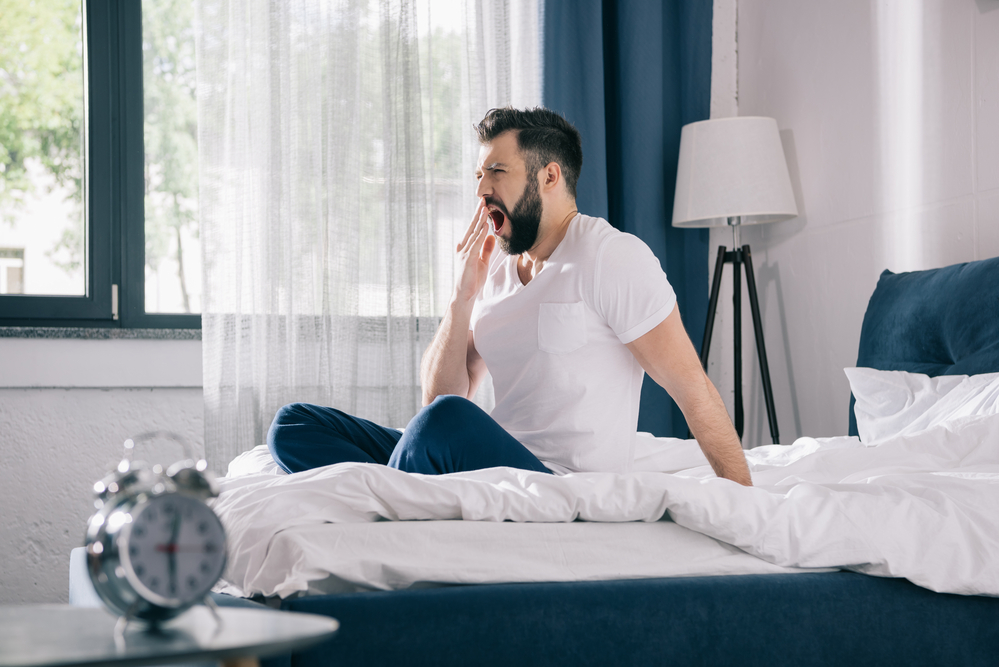A lack of sleep seems to have powered the development of Western civilization. From CEOs of renowned companies and presidents of countries to regular workers, millions of people work tirelessly and get away with only a little sleep.
Numerous analyses have been conducted to learn more about our sleeping needs and habits. One of the most comprehensive sleep studies was conducted by neuroscientists from Western University’s Brand and Mind Institute and its results were published in 2018. The research included more than 10,000 people from 173 countries, whose sleeping habits were monitored over several days. Read on to learn the key takeaways from the study and how we can all use them to improve our sleep habits.
Communal effects of sleep deprivation

Source: unsplash.com
One of the crucial findings of this study is that a chronic lack of sleep has a negative effect on communal cognitive thinking and reasoning. While previous studies showed similar results regarding our mental processes, the confirmation of a vast social impact of sleep deprivation is somewhat new.
The study included thousands of people from various continents, meaning that they had different backgrounds. But regardless of the climate, geographical area, or social differences, people who slept less than 6-8 hours a night experienced problems with cognitive and strategic thinking.
If we look at this from a wider perspective, it means that societies in which most people don’t get enough sleep can feel the communal effects of this issue. As a result, there may be more divorces and car accidents as a result of a lack of sleep. In that light, this study also confirmed a clear correlation between work productivity and sleep deprivation, which may result in poor economic results in communities affected by the issue.
Continuous oversleeping isn’t beneficial
When people discuss sleeping disorders, we usually talk about getting less sleep than necessary. However, oversleeping can cause serious issues as well, even though it is a far less popular topic.
The Brain and Mind Institute’s research has proven that sleeping more than eight hours every night for an extended period can lead to a condition of permanent drowsiness. In that case, it takes longer for your brain to get into a fully operational mode.

Source: depositphotos.com
Students and parents of little kids especially may find themselves succumbing to the habit of oversleeping. The former continuously oversleep after exhausting exam periods during which they stay up for nights. The latter, on the other hand, often can’t sleep well when their kids are babies and toddlers. Once the kids develop a regular sleeping routine, parents start sleeping more than recommended.
And as we all know, people tend to develop unhealthy routines pretty fast. On the other hand, returning to a healthy lifestyle isn’t always an easy thing to do.
The takeaway: You can have too much of a good thing. Try your best to lead a balanced life in every aspect, especially regarding your sleeping routines.
One long sleep makes up for lost nights

Source: depositphotos.com
While sleeping long hours in a row isn’t healthy, the results of the study showed that one long sleep is beneficial if you want to make up for several lost nights.
For instance, if your kid has been sick for a week or so, you probably haven’t got too much sleep during that period. Once he or she fully recovers, you’ll do right to treat yourself to a long night’s sleep.
Managers and workers should do the same once they’re through an exhausting period at work. What’s interesting is that your mind will start sending you signals that the body needs more sleep once it realizes that the stressful period is over. So, you’ll start feeling sleepy early in the evening and you’ll crave one long sleep. When you feel this urge, listen to your body and get some rest.
In that light, go offline immediately after work, have a light meal in the evening, and meet as many conditions to get more deep sleep as possible. When you wake up the following morning, you’ll feel satisfied and invigorated after a night of quality sleep.
Sleeping matters at every age
You can often hear people saying that young people can get away with less sleep while middle-aged and, especially, elderly people can’t afford to skimp on their nighttime rest.
While these needs depend on individual preferences, the world’s largest sleep study showed that sleeping matters at every age. Younger people tend to have more energy in general, but their cognitive functions and long-term memory will be affected by a lack of sleep, as well.
Elderly people, on the other hand, possess more experience and established work routines. For some of them, this means that they can afford to get less sleep because their work obligations don’t waste too much of their energy.
A rule of thumb and the golden mean is for people of all ages to sleep 7-8 hours per night. This amount of sleep will ensure getting enough rest while keeping the mind and body alert for different daily challenges.
Power naps restore cognitive functions

Source: depositphotos.com
Since a lack of sleep reduces cognitive functions, it’s necessary to find a way to make up for this loss during the day. The sleeping study shows that power naps are an efficient means of improving cognitive functions. Twenty-minute naps can boost workplace productivity as well, in addition to helping improve cognitive functions and reasoning among individuals.
This is a practical takeaway for SMB-owners, who should think about providing conditions for their employees to get regular power naps. Likewise, remote employees and those in charge of their work schedule can – and should – dedicate 20-minute time slots for a refreshing nap during working hours. The same goes for stay-at-home parents, who may choose to nap at the same time as their kids.
Final word
If you think that the road to success (in anything you do) is paved with sleep deprivation, think twice. The world’s largest sleep study has proven otherwise, showing that undersleeping as well as oversleeping are not sustainable lifestyle habits.
Make sure to maintain a consistent bedtime, get your 7-8 hours of quality rest each night, and squeeze in a power nap when you need it most. With these healthy habits, you won’t only be ensuring you can function at your best – you’ll also be contributing to a better society.


